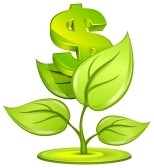 The article below was written ahead of Earth Day for the Toronto Star and appeared on page L1 on Friday, April 20, 2012. To see the original article online, click here.
The article below was written ahead of Earth Day for the Toronto Star and appeared on page L1 on Friday, April 20, 2012. To see the original article online, click here.
It’s a misconception that being eco-friendly is expensive or difficult. In fact, there are many simple changes we can make that benefit our bank accounts, health and the earth — often at the same time.
Here’s a list of 10 simple things families can on Earth Day and throughout the year.
Shower instead of bath – Showering consumes less water than bathing. You’ll save energy and money as a result. Shower in the evening and you’ll save even more because of lower off-peak billing rates. What’s more, the energy used to heat water at night does not come from coal or gas.
Use appliances more efficiently – Households often waste energy by using appliances like dishwashers and dryers when they’re not full. Most families will fill a dishwasher in about 2 days, so why run it daily? Use these appliances during off-peak hours and you’ll save on costs as well as reduce your carbon footprint.
Minimize laundry – Many clothing items do not need to be washed after every use. If a pair of pants is still free of crusted-on playdough or tomato sauce after one wear, re-hang them instead of putting them in the laundry bin. Lower the volume of laundry and you’ll save tedious folding time, energy costs and the environment through reduced energy and detergent usage. Clothes also last longer when they are washed less.
Hang your clothes instead of drying them – There isn’t a chemically-made fabric softener scent anywhere that can beat the smell of clothes that have been hung out to dry. Use Mother Nature to dry clothes with either a clothesline or a simple free-standing dryer, and you’ll save energy and lower your hydro bill.
Choose the right colour palette – When it’s time to paint your home’s exterior, consider that darker colours attract more heat than lighter colours, making your home more expensive to cool in summer. Choose lighter coloured shingles instead of darker coloured ones for the same reason if you’re replacing your roof. This principle applies when you buy a new car, too.
Shop local –Each time you visit a Farmer’s Market you reduce the carbon footprint of the food you eat. You also support your local economy. Local farms often need fewer preservatives since the distance that food needs to travel is so much less. Besides, local food is fresher and tastes better.
Grow your own – When you want to be absolutely sure of what goes into the food you eat, there’s no better way than to grow it yourself. Home growing virtually eliminates the carbon footprint of what you consume. Plus, tending a vegetable garden can also be a great learning experience for kids, who’ll take pride growing their own food.
Place limits on screen time – When weather is good, limit the amount of sedentary time kids spend watching TV, surfing the net or playing video games. Send them out to play and they’ll get exercise that keeps them healthy, hungry at mealtime and ready for bed. This will reduce your energy use by not having your family’s devices on all the time.
Walk, bus or carpool to school – Instead of driving your kids to school yourself, let them take the bus if the service is available. Alternatively, set up a car pool. Fewer vehicles on the road means less carbon in the atmosphere. It also gives kids more time to socialize with friends. If walking is possible, consider joining forces with other parents so kids can walk to school en masse.
Plan eco-friendly vacations – You can reduce your environmental footprint by choosing to vacation close to home. Camping in tents is an eco-friendly — and inexpensive — option that gets kids moving outdoors and provides countless opportunities to learn about nature and pick up skills. If you decide to visit a resort, look into whether the property abides by an eco-friendly program. In response to increased demand, more resorts and vacation destinations are working to become greener. Show your appreciation by vacationing there as opposed to somewhere that values environmental stewardship less.

Leave a Reply